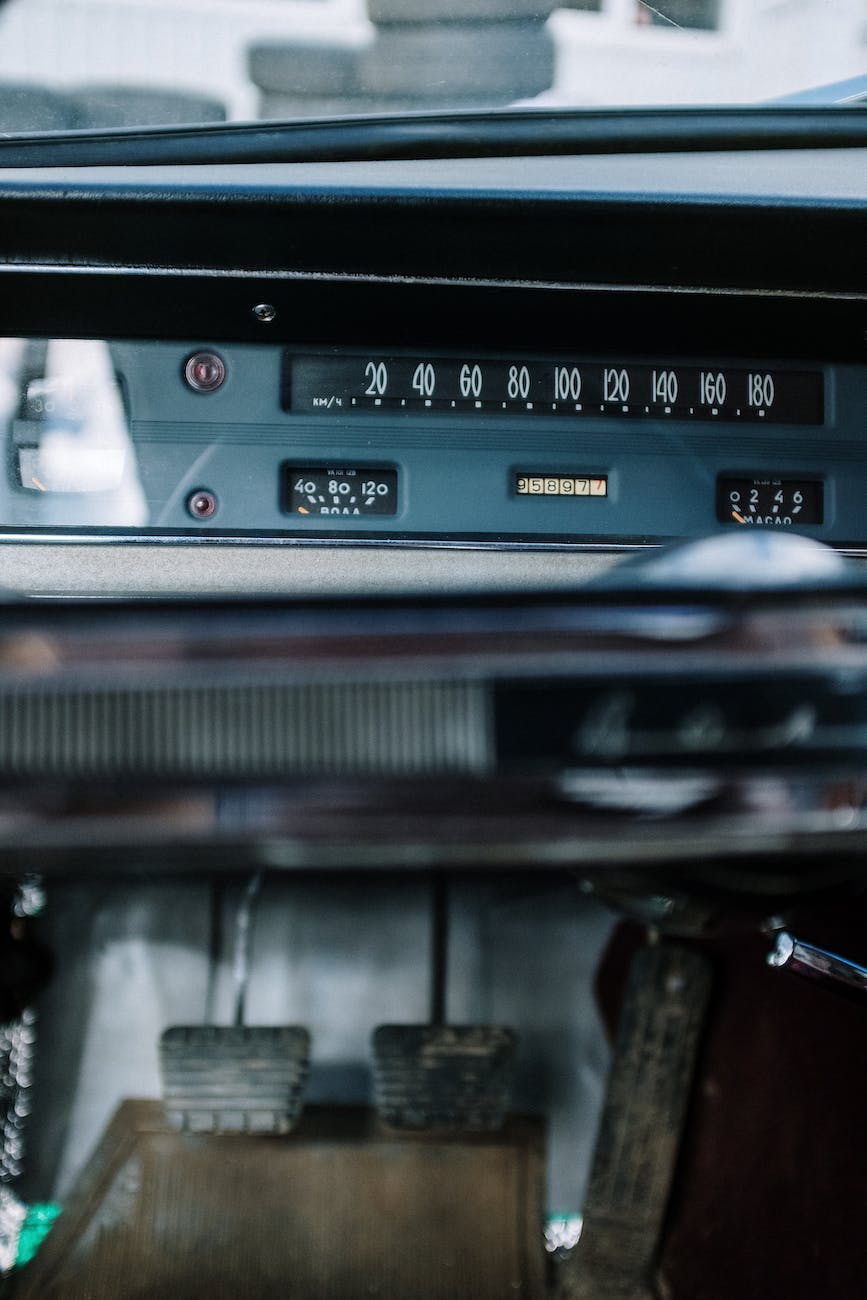Understanding Brake Services
Brake maintenance is a crucial aspect of car ownership, as the braking system is one of the most vital parts of a vehicle to maintain (source). Regular brake services are essential for maintaining the performance and safety of your vehicle’s braking system (Professional Auto Repair). In this section, we will explore the importance of brake maintenance and the signs that indicate you need brake services.
Importance of Brake Maintenance
The braking system of a car plays a critical role in ensuring your safety on the road. It allows you to slow down and stop your vehicle effectively. However, over time, the various components of the braking system, such as brake pads, rotors, and fluid, can wear out or deteriorate. This is why regular brake maintenance is crucial.
By investing in regular brake maintenance, you can:
-
Ensure Optimal Braking Performance: Brake maintenance helps to keep your braking system in top condition, ensuring that it operates effectively when you need it most. Regular inspections and servicing can identify and address any potential issues before they worsen, allowing for optimal braking performance.
-
Enhance Safety: The braking system is one of the most important safety features of your car. Neglecting brake maintenance can result in decreased braking performance, increased stopping distances, and potential brake failure (Professional Auto Repair). Regular brake services help to minimize these risks, ensuring that your vehicle can stop efficiently and safely.
-
Extend the Lifespan of Brake Components: Proper brake maintenance can help extend the lifespan of your brake components, such as brake pads and rotors. Regular inspections and necessary replacements or repairs will prevent further damage and ensure that your braking system lasts longer.
It is recommended to follow the manufacturer’s guidelines for brake service intervals. These guidelines can usually be found in the car owner’s manual. However, if you notice any signs of brake issues, it’s important to address them promptly, even if it’s before the scheduled maintenance interval.
Signs You Need Brake Services
Being aware of the signs that indicate you need brake services can help you identify potential problems with your braking system. Some common signs include:
-
Squeaky Brakes: If you hear squeaking or squealing noises when applying the brakes, it could be an indication that your brake pads need to be replaced. This noise occurs when the wear indicator on the brake pad is activated, signaling that the pads are worn down (source).
-
Soft Brake Pedal: If your brake pedal feels soft or spongy when you press it, it could be a sign of air in the brake lines or a problem with the brake fluid. This issue may affect the responsiveness and effectiveness of your brakes.
-
Vibrating Brake Pedal: A vibrating or pulsating brake pedal when you apply the brakes could indicate warped brake rotors. Warped rotors can compromise braking performance and should be inspected and replaced if necessary.
-
Increased Stopping Distance: If you notice that your vehicle takes longer to stop or the braking distance has increased, it may be a sign of worn-out brake pads or other brake system issues. Reduced braking efficiency can compromise your safety on the road.
-
Brake Warning Light: If the brake warning light on your dashboard illuminates, it’s an indication that your vehicle’s braking system requires attention. This light can indicate various issues, including low brake fluid, worn brake pads, or a malfunction in the braking system.
If you experience any of these signs or notice anything unusual with your vehicle’s braking performance, it is recommended to have your brakes inspected by a qualified technician. They can assess the condition of your braking system and recommend the necessary brake services, such as brake pad replacement, brake rotor inspection and replacement, or brake fluid exchange.
Regular brake maintenance is essential for optimal safety and performance. By addressing any potential brake issues promptly and investing in routine brake services, you can ensure that your vehicle’s braking system remains in excellent condition, allowing for a safe and reliable driving experience.
Types of Brake Services
To ensure optimal safety on the road, it’s important to understand the different types of brake services available. Regular brake maintenance plays a vital role in preserving the performance and reliability of your vehicle’s braking system. In this section, we will explore three key brake services: brake pad replacement, brake rotor inspection and replacement, and brake fluid exchange.
Brake Pad Replacement
Brake pads are a critical component of the braking system that provide the necessary friction to slow down or stop your vehicle. Over time, brake pads wear down due to the constant contact with the rotors. Therefore, it’s important to replace them periodically to maintain optimal brake performance and safety.
The frequency of brake pad replacement can vary depending on various factors such as driving habits, road conditions, and the type of brake pads used. As a general guideline, brake pads should ideally be replaced every 50,000 miles or as recommended by your vehicle’s manufacturer (Performance Honda). However, it’s crucial to pay attention to warning signs such as squeaky brakes, reduced braking efficiency, or thin brake pad thickness. If your brake pads are less than a quarter-inch thick, it’s time to replace them (Performance Honda).
Brake Rotor Inspection and Replacement
Brake rotors, also known as brake discs, work in conjunction with the brake pads to provide the necessary friction for braking. Over time, brake rotors can become worn, warped, or develop grooves, compromising their ability to function effectively. Regular inspection and, if necessary, replacement of brake rotors are essential for maintaining optimal braking performance.
During a brake rotor inspection, a qualified technician will examine the rotors for signs of excessive wear, warping, or damage. If the rotors are beyond their recommended thickness or exhibit severe damage, they will need to be replaced. By replacing worn or damaged rotors, you ensure that your vehicle’s braking system operates smoothly and safely.
Brake Fluid Exchange
Brake fluid is a crucial component of the braking system, as it transfers the force from the brake pedal to the brake components. Over time, brake fluid can become contaminated, leading to reduced braking performance and potential damage to the braking system. Therefore, regular brake fluid exchange is necessary to maintain optimal brake function.
During a brake fluid exchange, the old fluid is flushed out, and fresh fluid is added to the system. This process helps remove any moisture, debris, or contaminants that may have accumulated in the brake fluid. It is generally recommended to have a brake fluid exchange every two to three years, or as recommended by your vehicle’s manufacturer (Professional Auto Repair).
Proper brake pad replacement, brake rotor inspection and replacement, and brake fluid exchange are crucial for maintaining the safety and performance of your vehicle’s braking system. Regular brake services help prevent potential accidents and ensure that your brakes are operating at their best. If you’re in need of brake services, it’s recommended to seek professional assistance from trusted brake service providers like Jiffy Lube Brake Services or professional auto repair shops.
Remember, neglecting brake services can have severe consequences on braking performance and overall safety. By prioritizing regular brake maintenance, you can drive with confidence, knowing that your vehicle’s braking system is in optimal condition.
Factors to Consider for Brake Services
When it comes to ensuring the optimal safety and performance of your vehicle, brake services play a crucial role. To make informed decisions about brake maintenance, there are a few key factors to consider: recommended service intervals and budgeting for brake repairs.
Recommended Service Intervals
To maintain the effectiveness of your vehicle’s braking system, it is essential to adhere to recommended service intervals. While specific recommendations may vary depending on the make and model of your vehicle, a general guideline is to have a brake service performed every 20,000 to 30,000 miles or as indicated by the vehicle manufacturer (Professional Auto Repair).
One important aspect of brake service is brake pad replacement. Brake pads should ideally be replaced every 50,000 miles or as recommended by your vehicle’s manufacturer (Performance Honda). However, it is crucial to consult your vehicle’s owner manual or a professional mechanic to determine the specific brake service interval for your vehicle. Factors such as driving habits, make and model of the car, and other factors can influence the recommended service schedule.
It’s important to note that these are general guidelines, and it’s always best to follow the recommendations provided by your vehicle’s manufacturer. Regular brake services are essential for maintaining the performance and safety of your vehicle’s braking system.
Budgeting for Brake Repairs
Budgeting for brake repairs is an important aspect of owning a vehicle. While the cost of brake services can vary depending on factors such as the extent of repairs needed and the specific components requiring attention, it is crucial not to overlook the importance of investing in high-quality brake maintenance.
The cost of brake services typically includes the replacement of brake pads, inspection and potential replacement of brake rotors, and brake fluid exchange. The price can vary depending on the make and model of your vehicle, the quality of the parts used, and the labor charges at the service provider.
To ensure you are prepared financially, it is advisable to research the average cost of brake services in your area. Additionally, consider obtaining multiple quotes from reputable service providers to compare prices and services offered. While it may be tempting to opt for the cheapest option, it’s important to prioritize quality and safety when it comes to brake repairs.
Regular brake maintenance can help prevent more costly repairs down the line and ensure the safety of you and your passengers. By budgeting for brake repairs and seeking professional assistance when needed, you can address any brake-related issues promptly and maintain the integrity of your vehicle’s braking system.
Remember, when it comes to brake services, it’s always best to consult a professional mechanic or a reputable brake service provider to ensure your vehicle’s braking system is properly maintained and functioning at its best.
In the next section, we will explore the consequences of neglecting brake services and the impact it can have on braking performance and safety. Stay tuned!
The Consequences of Neglecting Brake Services
Ensuring the regular maintenance of your vehicle’s brakes is essential for both optimal performance and safety. Neglecting brake services can have severe consequences, impacting the braking performance and potentially leading to safety risks and accidents.
Impact on Braking Performance
When brake services are neglected, the overall braking performance of your vehicle can be compromised. Over time, the brake pads wear down, reducing their effectiveness in generating friction to slow down or stop the vehicle. As a result, the stopping distances may increase, making it more difficult to react to sudden situations on the road.
Neglected brake line repairs can also contribute to poor braking performance. Issues with the brake lines, such as leaks or damage, can lead to a loss of hydraulic pressure, causing a spongy or unresponsive brake pedal. This can significantly affect the ability to stop the vehicle promptly and safely.
Furthermore, worn-out or warped brake rotors can negatively impact braking performance as well. Brake rotors that are damaged or uneven can result in vibrations or pulsations when applying the brakes. This can lead to an uncomfortable driving experience and reduced stopping power.
Safety Risks and Potential Accidents
The consequences of neglecting brake services extend beyond poor braking performance. Safety risks and potential accidents can arise when critical brake components are not properly maintained.
In the event of brake failure due to neglected brake line repairs or worn-out brake pads, the safety of both the driver and passengers is compromised. Increased stopping distances and reduced responsiveness can make it challenging to avoid collisions, especially in emergency situations.
Accidents resulting from brake failure can lead to severe injuries, property damage, and even legal liabilities. Regular brake line inspections and maintenance are necessary to prevent costly repairs and ensure optimal brake performance and safety.
To prevent these safety risks and potential accidents, it is crucial to prioritize brake maintenance and promptly address any signs of brake issues. If you notice symptoms such as a soft or vibrating brake pedal, squeaking brakes, or increased stopping distances, it is recommended to seek brake services from a professional technician.
Brake services play a vital role in maintaining the safety and efficiency of your vehicle’s braking system. By staying proactive and addressing any potential brake problems, you can ensure the optimal performance of your brakes and enjoy peace of mind while on the road.
Where to Get Brake Services
When it comes to getting brake services, there are a few options to consider. Whether you prefer a well-known chain or a local auto repair shop, finding a reliable and trustworthy provider is essential for the safety and performance of your vehicle’s braking system.
Jiffy Lube Brake Services
Jiffy Lube is a popular nationwide chain that offers a range of brake services to meet your needs. Their brake services include:
- Brake Inspection: Jiffy Lube provides a comprehensive brake inspection to assess the condition of your braking system. This inspection helps identify any potential issues and determine the necessary repairs or maintenance.
- Brake Pad Replacement: If your brake pads are worn out or damaged, Jiffy Lube can replace them with high-quality brake pads to ensure optimal braking performance.
- Brake Rotor Inspection and Replacement: Jiffy Lube technicians inspect the brake rotors for signs of wear or damage. If necessary, they can replace the rotors to guarantee smooth and effective braking.
- Brake Fluid Exchange: Regular brake fluid exchange is crucial for maintaining the performance and longevity of your braking system. Jiffy Lube offers brake fluid exchange services to help keep your brakes in top condition.
It’s important to note that not all Jiffy Lube locations offer the same brake services, so it’s advisable to check with your local Jiffy Lube service center for specific services offered. Additionally, Jiffy Lube recommends following the manufacturer’s recommendations for maintenance schedules and service intervals to ensure your brakes receive the necessary attention they require.
Jiffy Lube also offers coupons and savings for brake services, allowing you to save on essential maintenance for your vehicle’s braking system.
Professional Auto Repair Shops
Another option for getting brake services is to visit a professional auto repair shop. These establishments often have experienced mechanics who specialize in brake repairs and maintenance. By choosing a reputable auto repair shop, you can ensure that your vehicle’s braking system is in the hands of skilled professionals.
Professional auto repair shops offer a wide range of brake services, including:
- Brake Inspection: A thorough brake inspection to assess the condition of your braking system and identify any potential issues.
- Brake Pad Replacement: Replacement of worn-out or damaged brake pads with high-quality replacements to restore optimal braking performance.
- Brake Rotor Inspection and Replacement: Inspection of brake rotors for wear or damage, followed by replacement if necessary to ensure smooth and efficient braking.
- Brake Fluid Exchange: Regular brake fluid exchange to maintain the proper functioning of your brake system and extend its lifespan.
When it comes to brake services, it is important to consult your vehicle’s owner manual or a professional mechanic to determine the specific service intervals recommended for your vehicle. Regular brake maintenance is crucial for maintaining the performance and safety of your vehicle’s braking system.
Whether you choose a well-known chain like Jiffy Lube or a trusted local auto repair shop, prioritize regular brake services to ensure optimal safety and performance on the road. By addressing any brake issues promptly and regularly maintaining your braking system, you can enjoy peace of mind knowing that your vehicle is equipped with reliable brakes.
DIY Brake Maintenance Tips
To ensure the optimal health and performance of your vehicle’s brakes, regular maintenance is essential. While it’s always recommended to seek professional brake services for major repairs and inspections, there are some DIY brake maintenance tips you can follow to keep your brakes in good condition.
Signs to Look Out for
Being aware of the signs that indicate potential brake issues can help you catch problems early and prevent further damage. Here are some signs to look out for:
-
Squeaking or Squealing Noise: If you hear a high-pitched screeching or squealing noise when you apply the brakes, it’s likely a sign that your brake pads need to be replaced. This noise is caused by a small metal wear indicator rubbing against the rotor, indicating that the brake pads are worn down (Performance Honda).
-
Vibration or Pulsation: Feeling a pulsation or vibration in the brake pedal when you apply the brakes can indicate an issue with your brake system. This may be caused by warped brake rotors or unevenly worn brake pads (Performance Honda).
-
Reduced Brake Performance: If you notice that your vehicle takes longer to come to a complete stop or the braking feels less responsive than usual, it could be a sign of worn brake pads, a leak in the brake system, or other brake-related issues.
-
Brake Warning Light: If the brake warning light on your vehicle’s dashboard illuminates, it’s important to have your brakes inspected as soon as possible. The warning light can indicate various issues, including low brake fluid levels or a malfunction in the brake system.
-
Visual Inspection: Regularly inspect your brake pads through the wheels. If the brake pads are less than a quarter-inch thick, it’s time to replace them. Additionally, check for any brake fluid leaks around the wheels, as this can be a sign of a damaged brake line or caliper.
Maintenance Practices for Brake Health
While some brake maintenance tasks are best left to professionals, there are a few practices you can follow to promote brake health:
-
Keep Your Brake System Clean: Regularly clean your wheels and brake components to remove dirt, dust, and other debris that can accumulate and potentially affect brake performance.
-
Avoid Excessive Brake Usage: Whenever possible, try to avoid harsh or sudden braking. Gradual braking allows the brakes to operate more smoothly and can help extend their lifespan.
-
Monitor Brake Fluid Levels: Brake fluid plays a crucial role in the proper functioning of your brake system. Periodically check the brake fluid level in the reservoir and top it up if necessary. If the brake fluid appears dirty or discolored, consider having a brake fluid flush performed by a professional.
-
Be Mindful of Brake Pad Wear: Regularly inspect your brake pads for signs of wear. If they are worn down to the minimum thickness or show uneven wear, it’s time to have them replaced. Follow the recommended service intervals provided by your vehicle’s manufacturer for brake pad replacement (Performance Honda).
Remember, while these DIY brake maintenance tips can help you stay proactive, it’s important to schedule regular professional brake inspections and services to ensure the safety and optimal performance of your vehicle’s braking system. If you’re in need of brake services, seek out a reputable brake repair shop or consider utilizing mobile brake services for added convenience.







